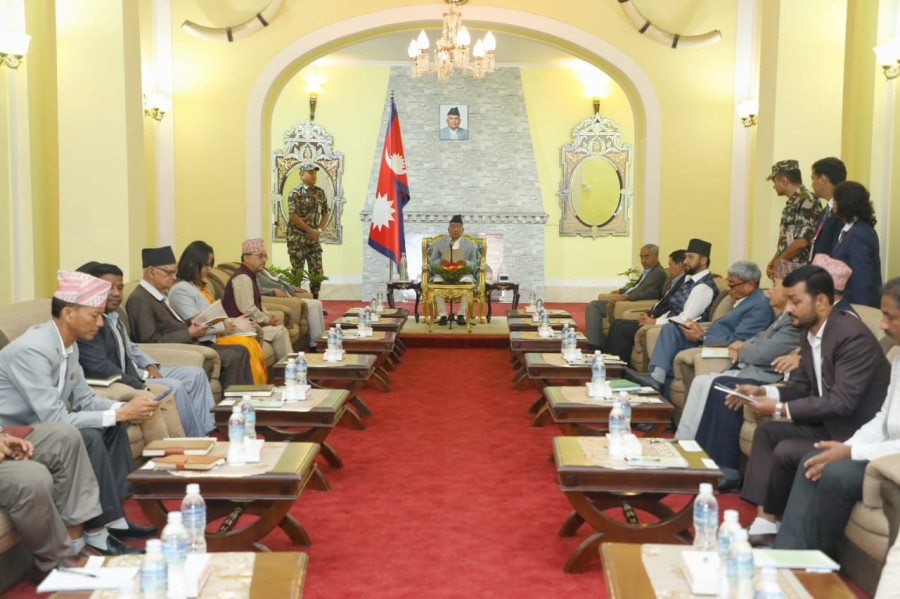Editorial
Presidential concerns
With Parliament obstructed indefinitely, it was natural for the President to take the lead to reopen it.
A sense of cynicism has taken hold of Nepalis. They have little faith in state institutions. It is not uncommon to hear people say that the ‘whole system’ is corrupt, be it the executive, the legislative or the judiciary. All these state organs function at the whim of a handful of political leaders, goes the allegation. This, unfortunately, is the case even with the largely ceremonial President, the ‘people’s guardian’ who is supposed to be above the political fray. The scepticism of Sheetal Niwas is not wholly misplaced. Its previous occupants repeatedly breached the constitution and played favourites among political parties. During the two terms of Bidya Devi Bhandari, the institution’s reputation hit a new low, as she openly supported then-Prime Minister KP Oli’s unconstitutional decision to dissolve Parliament, twice. On the other hand, she illegally sat on the ordinances forwarded by governments led by parties other than the CPN-UML, with which she had broken all ties when she became the head of state. Bhandari, moreover, was much reviled for her ostentatious ways in office.
Ramchandra Paudel, who became the new President back in March, promised to stay within the constitutional bounds and to shun any ostentation. He made a wonderful start by dispensing with the elaborate security arrangements for the President’s convoy, which in the past had caused people great hardship. In around five months since, Paudel had not waded into a political issue. This was until he recently decided to summon the leaders of the national parties, including the UML, for consultations on reopening the stalled Parliament. The main opposition charged him with ‘unnecessary activism’. Oli in particular was livid with Paudel who had apparently reminded the UML chair that if the party did not let the House function soon, the federal republic would be in a crisis. Paudel later clarified that he had no interest in ‘activism’ of any kind. As someone who had long struggled for the cause of democracy, he was only expressing his concerns over the state of the country.
To be fair, compared to Bhandari, his immediate predecessor, Paudel has given a much better account of himself as President thus far. His simple lifestyle is befitting of the high office he occupies. As the constitution’s custodian, he also has every right to use his office for the protection of the constitutional order. With Parliament obstructed for a long time and people’s concerns not getting a hearing, it was natural for the President to take an initiative to reopen it. The UML, as a party that believes in democracy, would do well not to discredit a vital state office without a compelling reason. At the same time, the President should also be careful about what he says and does. Oli seems to have taken exception to some of the words he used in their meeting. In today’s polarised political climate, Paudel, until recently an active politician, will be under close scrutiny. He should always err on the side of caution. But if the opposition wants him to be a mute spectator at all times, he cannot do that either.




 8.43°C Kathmandu
8.43°C Kathmandu














